Telford child sexual exploitation inquiry: What do we know?
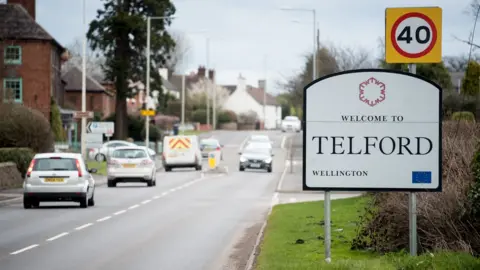 Gavin Dickson
Gavin DicksonThe findings of an inquiry into child sexual exploitation in Telford have been published.
It was set up after the Sunday Mirror newspaper report reported up to 1,000 girls had been abused by gangs in the town since the 1980s.
But what else led to the inquiry and what has happened in Telford?
What is child sexual exploitation?
 Getty Images
Getty ImagesChild sexual exploitation is a form of sexual abuse, children's charity the NSPCC said.
It said a child or young person may be given things such as gifts, drugs, money, status and affection, in exchange for performing sexual acts.
Children and young people, it said, were often groomed into believing they were in a loving and consensual relationship.
What has happened so far?
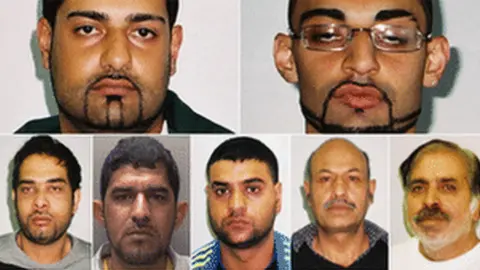 West Mercia Police
West Mercia PoliceIn 2012, seven men were jailed following a police investigation called Operation Chalice where children as young as 13 were plied with drugs and alcohol and sold for sex by men posing as so-called boyfriends.
West Mercia Police said there could have been 200 perpetrators and more than 100 girls could have been targeted between 2007 and 2009.
In 2016, Telford and Wrekin Council's children and young people scrutiny committee published a report on tackling child sexual exploitation, which said there were "far more" victims than those seeking help.
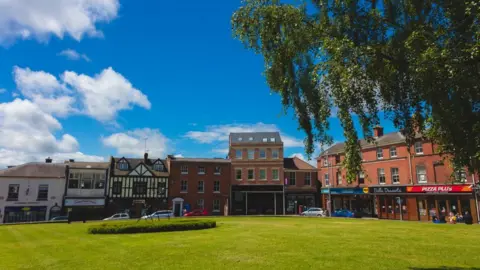 Getty Images
Getty ImagesThe committee made 38 recommendations, including carrying out work to identify the scale of the crime and setting up a "whistle-blowing hot line" for information to be passed on anonymously.
Members of the local street pastors group also said men suspected of being involved in the exploitation "blatantly" preyed on girls at under-18 nights in Shropshire,.
In 2018, West Mercia Police reported the force was working with "approximately 46 young people" who were victims of child sexual exploitation or considered "at risk".
And a year later, another investigation - Operation Vapour - saw four men jailed for sex offences against a 13-year-old girl in the early 2000s, although one later had his conviction overturned.
What led to the inquiry?
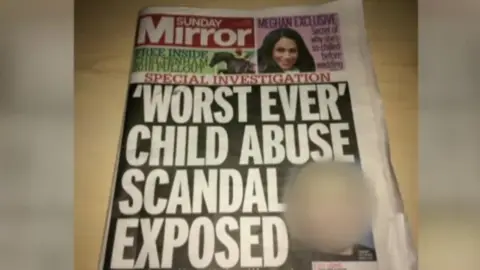
In 2018, the Sunday Mirror said up to 1,000 girls had been abused by gangs in Telford since the 1980s.
It led to mass calls from survivors, residents, MPs and councillors in Telford for an inquiry to be held.
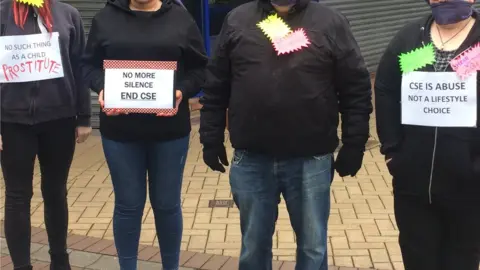
In April that year, Telford & Wrekin Council Labour councillors backed a motion by the opposition Conservative group in a unanimous decision to set up the independent, council-led inquiry.
The non-statutory inquiry was conducted by law firm Eversheds Sutherland led by chairman Tom Crowther QC.
What was it looking at?
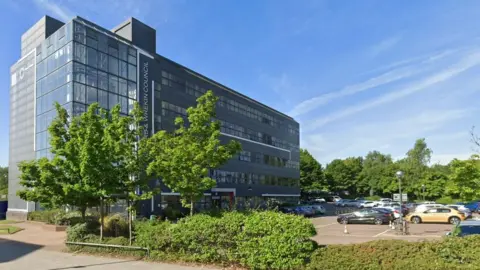 Google
GoogleWhen its terms of reference were published in July 2019, the inquiry said the areas it would focus on would include:
- The nature, extent and patterns of child sexual exploitation in Telford
- The impact of the abuse on victims and survivors and those around them
- Practices, policy and legislation put in place to identify and address child sexual exploitation and how sufficient they were
- The local taxi industry and taxi licensing
- The response of third party organisations to exploitation, including but not limited to Telford & Wrekin Council, local safeguarding board, police, NHS, education providers and care homes.
In its progress report of October 2021, the inquiry said its team had examined about 200,000 documents, mostly from Telford & Wrekin Council but also from West Mercia Police, NHS providers and the Crown Prosecution Service, among others.
It had also spoken to 167 witnesses, including 36 survivors or victims, or their family, friends or supporters.
What were its findings?
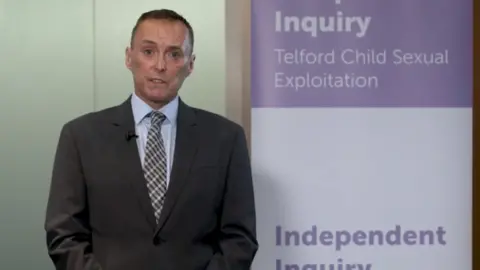 IITCSE
IITCSEThe report, made public at 17:00 BST on 12 July found:
- More than 1,000 children had been abused in Telford
- Obvious evidence of exploitation was ignored
- Information was not properly shared between agencies
- Key agencies dismissed exploitation as 'child prostitution'
- They also blamed children not perpetrators for exploitation
- Exploitation was not investigated because of nervousness about race
- Teachers and youth workers were discouraged from reporting exploitation
- Offending continued for years without concerted response
- Positive responses came from "concerted" individuals and not top-down directives
- Even after Operation Chalice, specialist child sexual exploitation teams were scaled down to "virtual zero" to save money.
What have survivors said?

Survivors of abuse in Telford led calls for the report, saying they and their families "deserved answers" about what had happened to them.
Ahead of its publication, they said they hoped the report would provide "closure" for those who were victimised.
One survivor, Holly Archer, who was among those who led calls for the inquiry, has also called for child sexual exploitation to be made into a specific criminal offence.
What happens next?
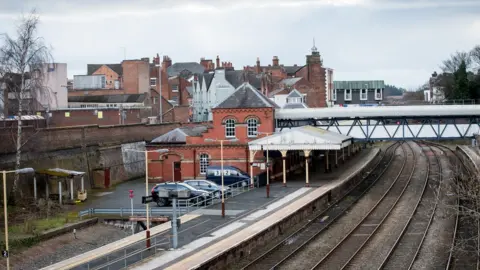 Gavin Dickson
Gavin DicksonThe report makes 47 recommendations which include:
- For Telford & Wrekin Council and West Mercia Police to introduce a joint child sexual exploitation review team to publish an annual report in Telford
- Telford & Wrekin Council to introduce counselling for survivors
- And for the council to ring-fence funding for its children abused through exploitation (CATE) team
- Telford & Wrekin Council, West Mercia Police and clinical commissioning group to review information sharing procedure
- The council to review abuse complaints procedure
- Police role in taxi licensing to be reviewed and for the council to consider implementing CCTV in taxis
- Schools to appoint an exploitation safeguarding lead
- Schools and colleges to carry out annual reviews of site security
- A review of police training
- A review of police complaints procedures
- Police and crime commissioner to continue funding initiatives to tackle child exploitation
- Training for NHS providers
- Improvements to trauma-related mental health services
- A consideration of increasing health services to sexually exploited children and guidance for sexual health clinics to be reviewed
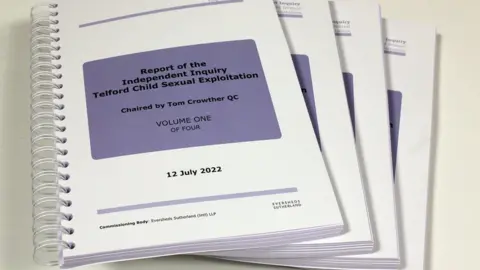 IITCSE
IITCSE
Follow BBC West Midlands on Facebook, Twitter and Instagram. Send your story ideas to: [email protected]
